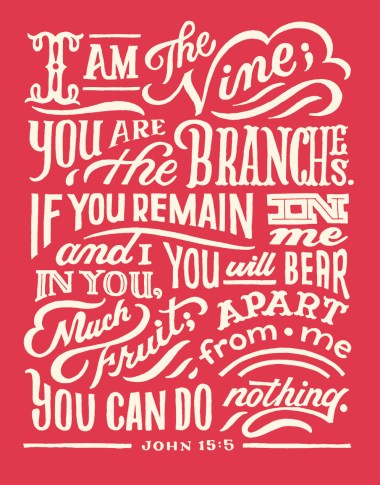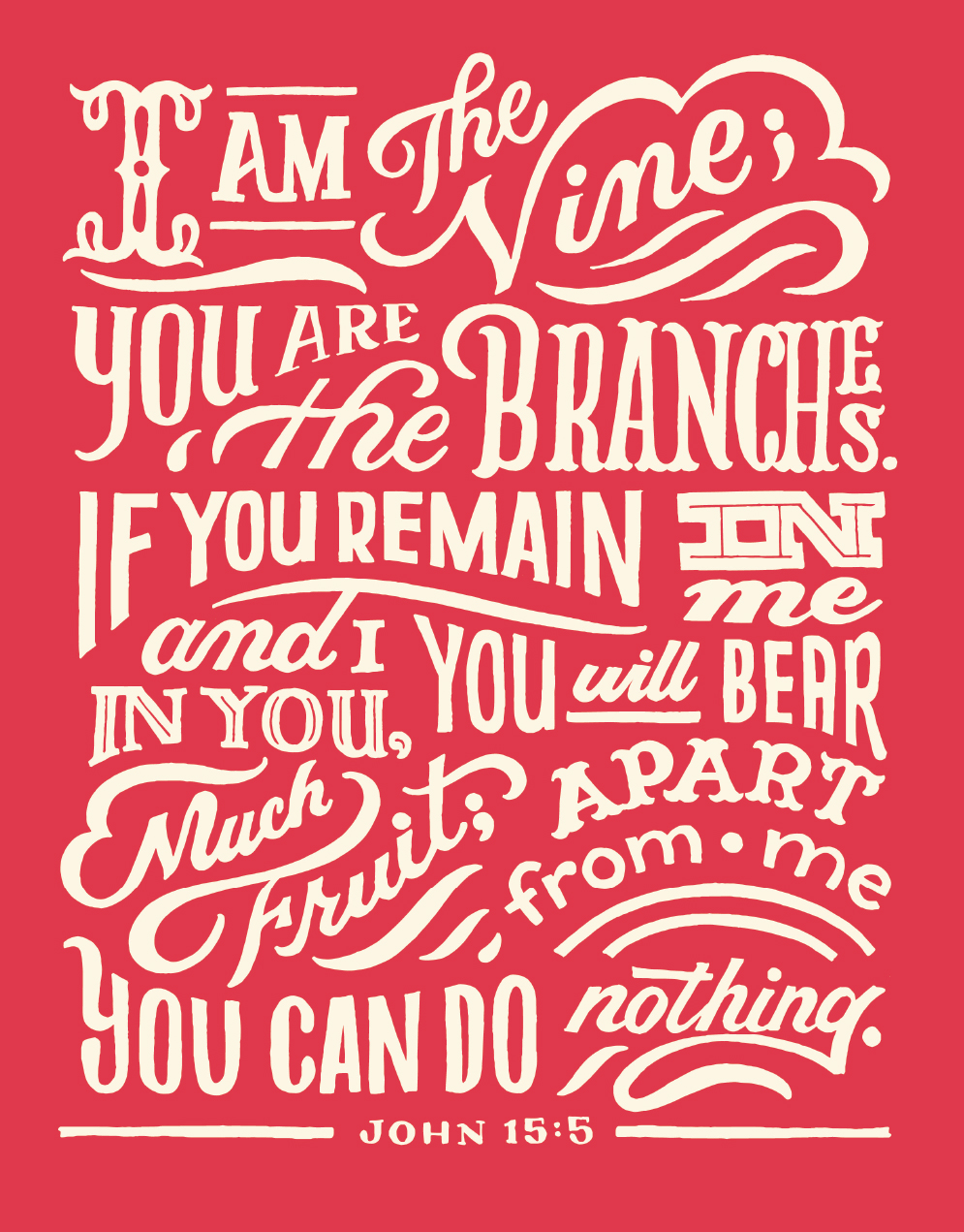When I began my senior year of college in the fall of 1975, I had been a believer for nearly two years and was being discipled through a campus parachurch ministry. One morning, I overslept. When I realized that I had missed my weekly appointment with the graduate student discipling me, I wondered whether any of this Christian stuff I had embraced was even real.

It certainly didn’t seem to be making much of a difference in me. I thought, Maybe the most honest thing to do would be to throw it all away and quit the religious pretense—which is what I thought my “faith” was.
What kept me sane? My connection with other Christians, the tender patience of my discipler, knowing that the guys I was discipling were depending on me, and my sense of how my defection would hurt other believers. In this season, I began to own the words of Peter. When Jesus asked him if he wanted to check out, he replied, “Lord, to whom shall we go? You have the words of eternal life” (John 6:68, ESV used throughout).
My interconnectedness with and outright dependence on the people of God secured my well-being, and it’s a lesson that comes back to me often. As a believer, I was never meant to stand on my own.
In John 15:1–17, Jesus calls himself “the true vine” and challenges his disciples to “abide” in him. Many of us connect the beautiful imagery here with that of grapes drawing nourishment from the vine. But Jesus means far more here than that.
Embodying Israel
In verse 1, Jesus declares, “I am the true vine.” It makes sense that Jesus would use such an image. He was speaking to agricultural peasants who were familiar with the vine; its produce was a staple in their diet. But there is another, deeper reason why Jesus used vineyard imagery: The vine is a recurring image in the Old Testament for the people of God. Consider, for example, Psalm 80:8: “You brought a vine out of Egypt; you drove out the nations and planted it.”
The vine here is Israel. We find the same image for Israel in Ezekiel 15 and 17, and in Hosea 10:1. But our passage more clearly echoes Jeremiah 2:21. Through Jeremiah, God addresses Judah—that is, what is left of Israel after the northern kingdom is destroyed—and explains why judgment will soon fall upon them: “Yet I planted you a choice vine, wholly of pure seed. How then have you turned degenerate and become a wild vine?” The Septuagint—the Greek translation of the Hebrew Old Testament—puts a twist on the text: “Yet I planted you a fruit-bearing vine, all true; How then have you turned into bitterness, O wild vine?”
God planted Israel to be the “true” vine, intending for them to bear fruit. The prophets teach us that bearing fruit means living lives of faithfulness, through which God would bring his light to the world. The prophets, of course, focus mostly on how Israel failed to live as the true vine and bear fruit.
In evoking the words of Jeremiah, Jesus is saying something about his own calling. On several occasions in Scripture, someone acquires a title that properly belongs to the people of God as a whole. For example, in Exodus 4:22–23, God calls Israel his “son” and his “firstborn.” Then in 2 Samuel 7:14 (see also Ps. 2:7), he names each king in the line of David his “son.” Psalm 89:26–27 also calls the Davidic king God’s “firstborn.” Further, Israel as a whole is the Lord’s “servant” (Isa. 41:8–9; 49:3), yet the Messiah is also the Lord’s “servant” (Isa. 49:5–6).
From the Old Testament, we learn that the Davidic king, the Messiah, has a fairly simple job description: to represent the people, to embody what they are, and to model true covenant faithfulness.
Thus, the most natural understanding of John 15:1 is that Jesus embodies Israel’s calling to be the true vine. And in claiming to be the true vine, Jesus claims to be in the line of David, the long-awaited Messiah, true Israel.
This clarifies who Jesus saw himself to be. But it also helps us understand what it means to be a branch in him (v. 2). In Scripture, to be “in” someone is to be a member of the people whom that someone represents or embodies. A good example is found in 2 Samuel 20:1: “We have no portion in David, and we have no inheritance in the son of Jesse.”
Jesus the Messiah is the ultimate king in David’s line. And to have a portion or share in him is to be a member of the people he rules.
Keeping On
If Jesus is claiming to be the true king over God’s people, what does it mean to abide in him? Jesus says,
Abide in me, and I in you. As the branch cannot bear fruit by itself, unless it abides in the vine, neither can you, unless you abide in me. I am the vine; you are the branches. Whoever abides in me and I in him, he it is that bears much fruit, for apart from me you can do nothing. (John 15:4–5, italics mine)
The stream of Christianity in which I was formed as a young adult thought of abiding in Christ as a higher state of dependence on and fellowship with him. Such piety, I was told, would give the believer more of Christ’s power. Thus, you can be a Christian who does not abide in Christ, but you need to abide if you want to deepen your spirituality and live a better life.
I might comply with this and quote “apart from me you can do nothing” (v. 5) to motivate myself to pray before I begin writing a commentary on Scripture. But this interpretation does not accord with what Jesus means in this passage.
The English word abide means “to remain” (as in the hymn, “Abide with me, fast falls the eventide”) or “to endure” (as in Diz Wallis’s children’s book A Jar Full of Mice, where the cook says, “I cannot abide a house with a mouse!”). The Greek word (menó) has nearly the same range of meaning as the English abide. In John 1:32, John the Baptist saw the Spirit “remaining on” [emeinen ep’] Jesus. And in the Greek translation of Psalm 89:36, the offspring of David will “endure forever” (eis ton aióna menei).
The Septuagint uses this word for places where God’s people are expected to keep on in the faith by obeying God’s law. In Isaiah 30:18, the Hebrew is translated into English as “blessed are those who wait for him,” while the Greek version is rendered “blessed are those who abide in him.” And in Jeremiah 31:32, the Hebrew is translated as “they broke my covenant,” while the Greek version offers “they did not abide in my covenant.” The Greek exceptionally and dynamically captures the nuance of the Hebrew in these instances. This word is a key term in John’s writings. For example, “Whoever feeds on my flesh and drinks my blood abides in me, and I in him” (John 6:56). And “now, little children, abide in him, so that when he appears we may have confidence and not shrink from him in shame at his coming” (1 John 2:28).
Nowhere does John suggest that abiding is optional for believers. Rather, genuine believers abide, and false believers do not. This helps us further understand what it means to bear fruit. Christians debate whether the “fruit” Jesus speaks of is character development like the fruit of the Spirit (Gal. 5:22–23) or evangelistic fruit, such as leading people to Christ. A careful reading of the Old Testament, however, shows us that such an either-or dichotomy is false.
When the Old Testament uses the image of bearing fruit, fruit usually signifies covenant faithfulness, particularly a character that displays God’s own beauty. The focus is on God’s people as a whole and how the rest of the world perceives them. God called Israel so that they would live out their embrace of his covenant—with its requirements and provisions for forgiveness—and in so doing advertise to the world that the God of Israel is the one true God, whom all of us were created to know and love.
So when Jesus tells his disciples to abide in him, he is telling them to be faithful members of that people for whom he is King. And he says that he chose them so that they should go and bear fruit “and that your fruit should abide” (v. 16). This means that our seemingly insignificant lives, if lived faithfully, will yield lasting results.
Staying Connected
At first glance, Jesus doesn’t seem to offer any practical suggestions for how to abide. When most of us read these words about abiding, we probably think of individual practices of Bible reading, prayer, resisting temptation, and attending worship. All of these are good and are certainly part of what it means to abide. But they are a small part of a larger picture.
To be in the vine, as we have seen, is to be in Jesus—more specifically, to be counted among that people whom Jesus represents: true Israel. When we become part of the church, we join a web of relationships with other members, all of whom are connected to Christ. The lives of the members are woven together by the invisible bond of the Holy Spirit. We all depend on one another. And, generally speaking, the life of Christ comes to us mediated through other Christians. To abide in Christ is to use our connection to other Christians as the vehicle by which Christ ministers life to us—and each of us is a vehicle of Christ’s life to others.
One of the ways that evangelicals distinguish themselves from Catholics is in their understanding of the sacraments. In The Plan of Salvation, Presbyterian theologian Benjamin Warfield said where Catholics and evangelicals disagree turns over whether God “saves men by dealing himself immediately with them as individuals, or only by establishing supernatural endowed instrumentalities in the world by means of which men may be saved.” Evangelicalism, Warfield says, “sweeps away every intermediary between the soul and its God, and leaves the soul dependent for its salvation on God alone, operating upon it by his immediate grace.”
While I appreciate Warfield and how he spoke into his own historical setting, I can’t help thinking of this G. K. Chesterton quote: “There is something to be said for every error; but, whatever may be said for it, the most important thing to be said about it is that it is erroneous.”
To be sure, Christ and individual believers have an immediate connection. But to turn this single truth into the whole mistakenly leads to the idea that true faith can stand on its own. While I am confident that my faith is true, I have absolutely no idea whether I could stand on my own. And in fact, God never intended for me to try.
Jesus tells his disciples to “love one another” (v. 12, 17), and for good reason. We need each other if we are to follow Jesus. That was certainly true for me as a new believer in college and even later as a more mature Christian.
Several years ago, I was wounded deeply through some relational conflict. Looking back, I question whether I was right to take it so hard. I became so angry and discouraged that I had no idea how to deal with the situation or how I was to continue as a seminary professor. In retrospect, I wonder if I was on the verge of depression.
Yet God’s people helped me. My wife listened to me vent—every night, it seemed, when we walked our dog. Several of my colleagues reached out to me with tender sympathy. And the fellows with whom I was team teaching a class helped me more than I can say. They didn’t speak much to my particular hurt. Simply being immersed in the team atmosphere kept me going. And I certainly didn’t want to negatively affect my students, so I pressed on in order to be of good use to them. All of this enabled me to let go of my anger.
I wasn’t experiencing a crisis of faith, but who knows where I would have ended up without the help of other Christians. I drew on the life of Christ through them, even when I felt like my personal connection to Jesus was weak—or even dead.
Nothing compares with Jesus calling you his friend (v. 15) and treating you as a co-worker in bringing blessing to the world. And we bring blessing to others by simply staying connected to Christ’s body. Jesus has set out a hard road for us to travel, because the road he traveled was difficult. But it is a road to blessedness. And the good news is that we experience blessedness even now as we abide in Christ and stay connected to the members of his body.
C. John Collins is professor of Old Testament at Covenant Theological Seminary and author of Did Adam and Eve Really Exist?: Who They Were and Why You Should Care.











